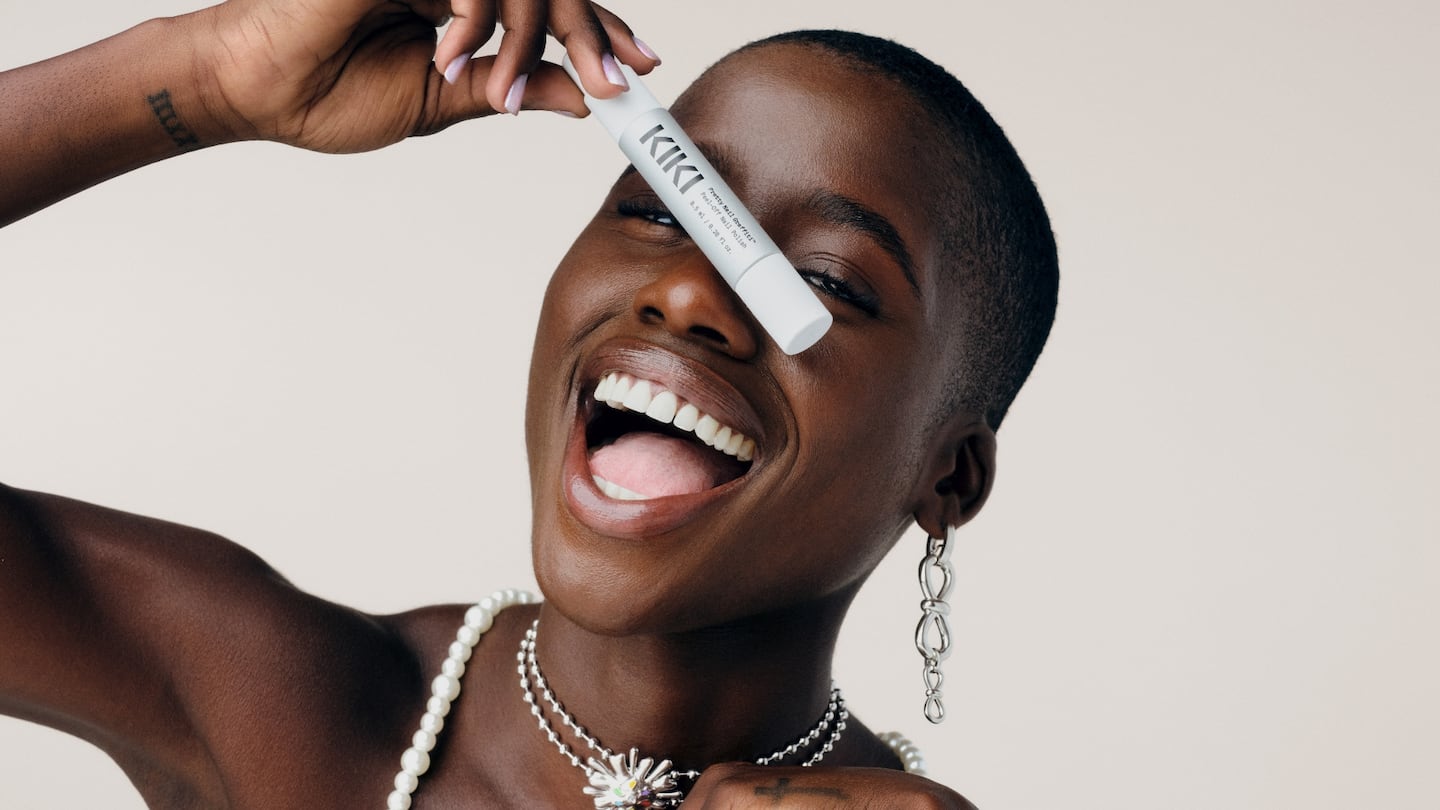
The Business of Fashion
Agenda-setting intelligence, analysis and advice for the global fashion community.

Agenda-setting intelligence, analysis and advice for the global fashion community.

There’s a new standard for what sort of digitally-native start-ups can catch investors’ attention.
Take Oddity Tech. When the company, which collects and uses consumer data to develop beauty brands like cosmetics seller Il Makiage and hair and skin care upstart Spoiled Child, went public in July, it became an immediate DTC success story, bagging a nearly $3 billion valuation at market close on its opening day, above the $1.7 billion valuation it sought pre-IPO.
Investors were enthusiastic about Oddity’s financials: profitable growth in the second quarter, with revenue jumping more than 50 percent and net profits more than 80 percent year-over-year. Its stock has fallen a bit from its debut but is still more than 10 percent higher than its IPO price. It’s a contrast to the performance of the earlier generation of DTC darlings: even eyewear maker Warby Parker, one of the few DTC brands to report profit gains in the second quarter, has seen its stock drop more than 10 percent in the past month.
But it’s not just the path to profitability that investors are after. As the cost of capital remains high and appetite for risk lowers, they are putting money behind tech-savvy backend platforms like Oddity that make products or software for external brands or labels in their own portfolio rather than purely consumer facing start-ups.
ADVERTISEMENT
Simply selling a product online directly to consumers is not enough to attract investors, especially as many e-commerce brands are unprofitable with slowing sales growth. Desirable start-ups today have technology more deeply embedded in their business models, using data to create the exact type of product consumers want and to personalise the online shopping experience.
“There are companies with amazing software that create great AI; [and] there are beauty companies that create great products,” Lindsay Drucker Mann, Oddity Tech’s global chief financial officer, told BoF. “If we don’t have both, we don’t have a business. We can’t do one or the other.”
Consumer brands without these tech components to their businesses are struggling to raise money, with some forced to sell to lesser-known strategics, like Gen-Z intimates company Parade, which sold to lingerie company Ariela & Associates International earlier this month. The number of venture capital deals for consumer brands globally fell 38 percent year-over-year in the first eight months of 2023, according to PitchBook data.
Investors are more comfortable betting on companies like Hilos, which uses tech like 3D printing to make shoes for brands, and Blanka, which provides digital services for companies to launch beauty lines, both of which have closed funding rounds this year. The thought is that they will be able to precisely target and retain customers at lower costs, generating profitable growth quicker than DTC brands in the past, said Michael Farello, managing partner at investment firm L Catterton, which invests in brands like Oddity Tech.
“What you’re seeing is rewards going to the businesses that have truly distinctive data and technology capabilities,” Farello said. “Those brands should be able to …scale profitably faster than brands have historically been able to do.”
Investors are looking for start-ups that are as savvy with cash as they are with their tech.
Before it approached investors for its seed round this year, beauty tech platform Blanka was already generating cash, and it plans to reach profitability on an earnings before interest, tax, depreciation and amortisation basis by 2025, said Kaylee Astle, Blanka’s founder and CEO.
Its tech capabilities — Blanka works with manufacturers to create beauty formulas that brands can put their logos on and it handles fulfilment to help brands distribute those products, and plans to implement an AI-generated logo creator and instant logo rendering to its platform in the next year — sealed the deal. One investor that approached Blanka even spoke of their failed attempts to create a standalone beauty brand because they lacked such resources.
ADVERTISEMENT
Blanka initially sought to raise $1.5 million in February; by May, the company closed its round at $2 million, with a valuation eight times higher than its projected revenue for 2023. The standard for valuations right now is anywhere between two and five times projected revenue, one investor in consumer brands said, but Blanka’s credentials gave it a leg up.
“It was absolutely the ‘tech with beauty’ angle,” Astle said. “There’s a lot of excitement around the fact that we were essentially modernising a really archaic supply chain, and at the same time democratising the ability to launch a brand.”
Similarly attractive tech-enabled start-ups are able to be selective in a challenging fundraising environment. Hilos, which designs and manufactures shoes on a quicker turnaround for brand partners with technology like 3D printing, raised $5 million in its latest funding round in March. Not only was that more than the $4 million it originally aimed for, but Hilos even turned down investors in order to choose the right partners, said Elias Stahl, Hilos’ co-founder and CEO.
“When Hilos announces funding rounds, we do it very intentionally by bringing partners to the business that help us grow to that next level,” Stahl said. “We’ve had our investor partners really act as partners in that business when it comes to anything from building out the team and staffing to how we think about governance to how we think about the brands we’ll be working with in the coming year.”
Even if you’re not a tech-first company, having innovation as a core brand tenant can help court investors.
Kiki World, which sells a $29 nail polish that consumers can peel off for easier removal and more frequent reapplication, raised nearly $4 million in early May in a round led by Andreessen Horowitz’s crypto fund, before publicly launching its platform later that month.
The brand lets customers vote on the colours they launch on its online store, and voting consumers who eventually purchase the product are issued an NFT version even if they don’t have an existing crypto wallet. When Kiki World starts selling in multi-brand retailers, customers with NFT versions of a nail polish will be able to earn a percentage of that colour’s sales, said Jana Bobosikova, Kiki World’s co-founder and CEO. The company expects to start generating operating profits from sales of its nail polishes in the next 18 months, she added.
While exciting tech capabilities can help digitally-native start-ups secure funding before launching or command higher valuations, in today’s market, it’s still a healthy bottom line that matters most for investors. Even in the difficult funding environment of the past year, brands without technological capabilities or ambitions have been able to secure capital if they can display a clear path to profitability. Beauty seller Iris&Romeo, for example, raised money at an undisclosed sum last November to fund a retail expansion the company pitched to investors as a profit driver.
ADVERTISEMENT
But the most sought-after start-ups will prioritise investments in tools that improve their businesses, such as personalising their customers’ experiences or better managing inventories, even if they don’t build those features in-house, investors say.
“There will be plenty of successful businesses with just a strong brand,” Farello of L Catterton said. “The most powerful ones will have strong products and strong technology.”
The Gen-Z intimates brand’s sale to a little-known strategic is the latest in an ongoing series of less than desirable exits for unprofitable digitally-native start-ups.
Instead of emulating the face-paced growth favoured by their predecessors, Gen-Z-centric fashion and beauty start-ups are taking a steadier approach to brand-building.
Fashion and beauty start-up valuations appear to have stabilised after plunging last year, though it may be months or even years before many return to their old highs — if they ever do. But there are ways for emerging and established players to ride out the downturn.

Malique Morris is Direct-to-Consumer Correspondent at The Business of Fashion. He is based in New York and covers digital-native brands and shifts in the online shopping industry.
In London, where independent labels have been hit hard by the implosion of key stockist Matches, brands like Clio Peppiatt, Marfa Stance and Completedworks have grown direct-to-consumer businesses that peers can learn from.
Apparel start-ups founded on the promise of offering men the perfect T-shirt are proving resilient in an otherwise dreary DTC sector rampant with fire sales, bankruptcies and steep revenue declines.
Apparel brands Knot Standard and Billy Reid are teaming up in a move investors say we may see more of as fashion start-ups seek alternative funding routes to grow their businesses.
Warby Parker, Everlane and other brands are partnering with small, but buzzy fashion labels as an inexpensive way to find new customers, and regain some status with shoppers who have moved on.